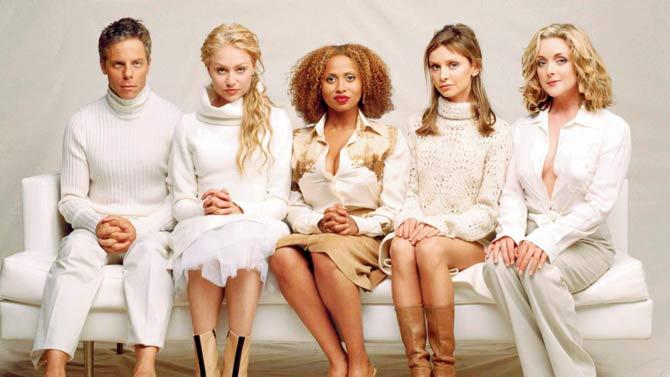As women, playing the victim card repeatedly puts us in a place of constant weakness, belittling the plight of actual victims of oppression


ADVERTISEMENT

I was really still a teenager when Ally McBeal aired on cable TV, I'd quite forgotten its feminist pretext, and so re-watching it is a wondrous experience
There was one specific piece of dialogue that stood out for me. I can't now remember the entire context, but it had to do with something misogynist, and Renee says to Ally, "It's the same thing." Ally retorts, "We're women, we have double standards to live up to." There are many precious instances of clever, feminist repartee in the show, but this one about double standards is one I've been turning over in my head the last couple of days as I think a bit more about the feminist movement and how, sometimes, good intentions on the part of a well meaning few can jeopardize the integrity of the cause. It's too easy to think that the show's writer, David Kelly, is suggesting that women have to live up to the double standards that men have propagated for centuries through the institution of patriarchy. But I actually have dared myself to think that what Ally is tacitly implying is that because women have been subject to double standards systematically over time, we need to, in fact, be better. That being a feminist means not only exposing gender bias but consciously not endorsing bias either.
I believe this is connected to another brilliant episode when Ally finally decides to visit her colleague, John Cage's therapist, who offers her a brilliant mechanism for coping with moments when her self-esteem either is taking a dive, or she feels truly vulnerable and even weak. Find your theme song, her therapist, Tracy, instructs her. Later, when Ally and her gang are out at the bar where Vonda Shepherd sings, the therapist subtly tells Ally and Georgia, the wife of her former lover, Billy, about women's folly in constantly taking for granted that it is not a level playing field for women, that sometimes it's better to radically believe it can indeed be a woman's world. It's also related to Michelle Obama's deliciously snide motto, a rebuttal, of sorts, to the misogynistic nature of Trump's campaign, "When they go low, we go high."
I've never been one for self-righteousness. I grew up around many people who truly believed that going to church every day genuinely made them better than everyone else, and relieved them of any culpability when it came to practising their humanity, or even the basic tenet of Christianity, which is to love thy neighbour as yourself. But I think young feminists like me need to really spend time examining how we practice feminism as a calling and an identity, and what it means to claim the moral high ground. I am very clear that I don't want to be seen as equal to a man, what I want are the same rights and dignity that men have historically been entitled to.
I don't want to live my life aspiring to be seen as capable of doing the same job as a man. I want to be better… I want to claim for myself the opportunities that men are entitled to, but not so I can be either equal to or superior to men. I want it so I can be the best version of myself. And in this process of demanding equality of rights, or revealing the endemic biases that women have been subjected to, I want to not fall into or resort to the same tactics that have formed the basis of my oppression. I do not want to shame men into decency, nor do I want to threaten them into submission by fear of procedural punishment. I genuinely believe in the potency of dialogue, and also that men are not the enemy, patriarchy is. And while the personal is deeply political in my writing, I also don't want to take things so personally that I keep replaying the role of victim over and over again, in the process belittling the plight of actual victims of sexual oppression and simultaneously functioning from a position of constant weakness.
As feminists, we must be very careful not to fall into the trap of double standards. We must be conscientious. We, who have historically been targeted by biased legislation, must be cautious not to abuse the laws we have fought to have restructured in our favour. We must not cry wolf. We must not undermine the efforts of all the women who have fought for the liberties we now enjoy. It may seem problematic to be compelled to claim the moral high ground as a de facto extension of being feminist, but we must remember that the cause is bigger than our own self-interests.
Deliberating on the life and times of Everywoman, Rosalyn D'Mello is a reputable art critic and the author of A Handbook For My Lover. She tweets @RosaParx. Send your feedback to mailbag@mid-day.com
 Subscribe today by clicking the link and stay updated with the latest news!" Click here!
Subscribe today by clicking the link and stay updated with the latest news!" Click here!







